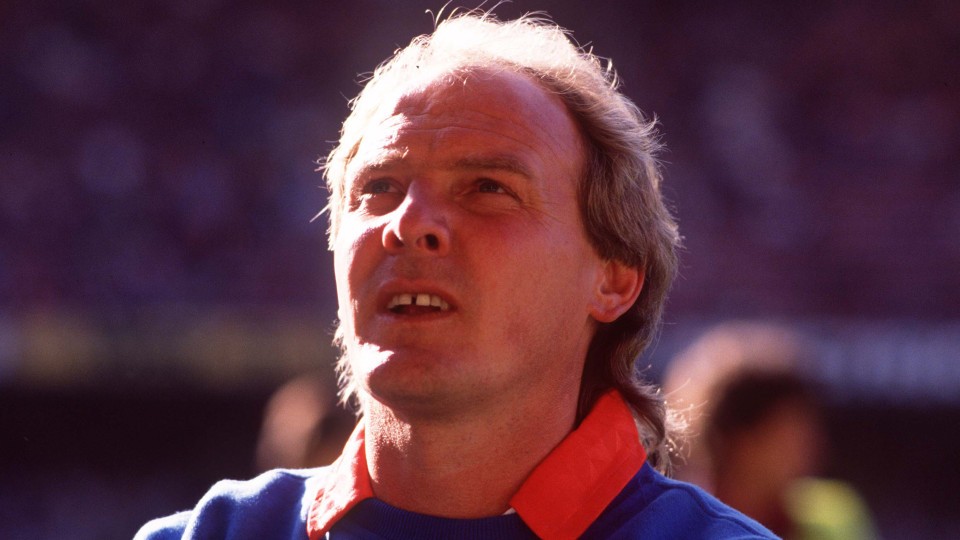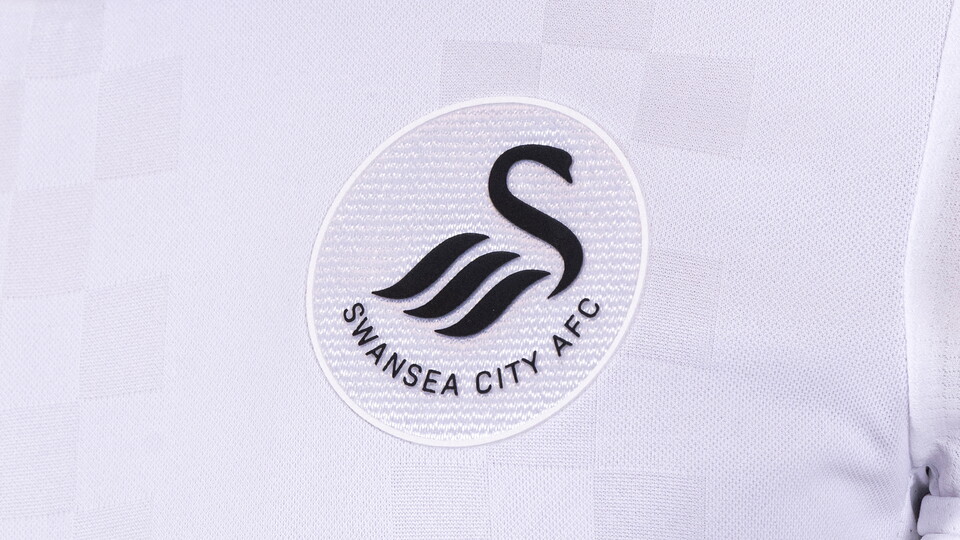Swans appoint full-time performance psychologist
Wed, 07/09/2014 - 08:00
Swans boss Garry Monk has strengthened his backroom staff in a bid to ensure his squad is mentally prepared for the new Barclays Premier League campaign.
Ian Mitchell, 43, teamed up with the Swans on their pre-season training camp in America this week as the club's first full-time 'performance psychologist'.
The former professional footballer quit his role as a principle lecturer and director in sports science and psychology at Cardiff Metropolitan University to take up the unique post.
"I'm looking forward to the challenge,'' declared Mitchell, who is believed to be the first performance psychologist to be employed on a full-time basis in the Premier League.
"I will be working closely with Garry (Monk), the medical and technical staff and the players to optimise preparation and performance.
"There has been a bit of a stigma with psychology in the past because people tend to associate it with mental problems. But the game has evolved so much that it is now being introduced more and more to the benefit of individual players and the team as a whole.
"Using psychology during rehabilitation is a typical example as many injured players face a number of highly stressful demands that have the potential to significantly affect their recovery and return to games.
"Common responses of injured players include the feelings of isolation, the inability to train, slowness of progress, rehabilitation setbacks, weight gain, a loss of confidence and a fear of re-injury. There can be shock, tension, depression, anger, confusion, frustration and anxiety as they feel isolated and dis-engagement from the squad.
"It's important we help them through that rehabilitation process to restore confidence for their return to full training and a competitive game situation.''
Mitchell also believes that you develop high performance teams, both for staff and players, through healthy and positive conflict.
"It's important that we're not too compliant,'' he added. "I'm yet to see the perfect model, so we can improve in everything that we do. As staff and players we need to reflect on our strengths and weaknesses and challenge each other to be the best we can.''
Mitchell has already spoken to every member of the first-team squad in order to build their profile and structure their individual mental programmes.
"With the whole world watching and analysing the Premier League, it can be an unforgiving and pressurised place to be as a footballer. That's why the players have got to be resilient in order to bounce back from mistakes, defeats and to maintain a high level of performance," he said.
"When it gets tough you've got to be determined to get through it. Part of my job is to work towards establishing that mental toughness, confidence, resilience and emotional control to do just that.''
Mitchell has plenty of first-hand experience to help him achieve success in his new role.
Having started his career as a schoolboy at Chelsea, the Ebbw Vale-product also captained Wales up to Under-18 level before signing professional forms with Hereford in the old Division Three.
But after two years with The Bulls, he was forced to leave the pro game behind after a broken leg and serious cruciate ligament damage.
He made the move closer to home and enjoyed 10 years as a prolific striker with Merthyr Tydfil where his part-time career spanned nearly 300 games.
Off the field he put a Master's Degree and PhD to good use to become a principal lecturer in sports psychology and director of sports science at Cardiff Metropolitan University - a position he recently relinquished after 18-years' service.
Having just completed his UEFA A licence, he has coached the Wales Victory Shield team for the last two seasons; managed the GB and Wales University Student squad, while also working with the Under-21s and U18s in the Swans Academy for the previous two years.
He has also delivered and assessed on the UEFA Professional and Advanced licences in the areas of coaching effectiveness, leadership and psychology over the last 12 years.
In fact, such is his growing reputation in the game; Wales boss Chris Coleman has also recently appointed him as the national team's performance psychologist for their forthcoming European Championship qualifiers.
"I think you will see a lot more psychologists becoming involved in top level football over the next few years,'' added Mitchell.
"I know it is something the Swansea chairman (Huw Jenkins) is keen to develop at the club by integrating what we are doing at first team level into the Academy system.''
Ian Mitchell, 43, teamed up with the Swans on their pre-season training camp in America this week as the club's first full-time 'performance psychologist'.
The former professional footballer quit his role as a principle lecturer and director in sports science and psychology at Cardiff Metropolitan University to take up the unique post.
"I'm looking forward to the challenge,'' declared Mitchell, who is believed to be the first performance psychologist to be employed on a full-time basis in the Premier League.
"I will be working closely with Garry (Monk), the medical and technical staff and the players to optimise preparation and performance.
"There has been a bit of a stigma with psychology in the past because people tend to associate it with mental problems. But the game has evolved so much that it is now being introduced more and more to the benefit of individual players and the team as a whole.
"Using psychology during rehabilitation is a typical example as many injured players face a number of highly stressful demands that have the potential to significantly affect their recovery and return to games.
"Common responses of injured players include the feelings of isolation, the inability to train, slowness of progress, rehabilitation setbacks, weight gain, a loss of confidence and a fear of re-injury. There can be shock, tension, depression, anger, confusion, frustration and anxiety as they feel isolated and dis-engagement from the squad.
"It's important we help them through that rehabilitation process to restore confidence for their return to full training and a competitive game situation.''
Mitchell also believes that you develop high performance teams, both for staff and players, through healthy and positive conflict.
"It's important that we're not too compliant,'' he added. "I'm yet to see the perfect model, so we can improve in everything that we do. As staff and players we need to reflect on our strengths and weaknesses and challenge each other to be the best we can.''
Mitchell has already spoken to every member of the first-team squad in order to build their profile and structure their individual mental programmes.
"With the whole world watching and analysing the Premier League, it can be an unforgiving and pressurised place to be as a footballer. That's why the players have got to be resilient in order to bounce back from mistakes, defeats and to maintain a high level of performance," he said.
"When it gets tough you've got to be determined to get through it. Part of my job is to work towards establishing that mental toughness, confidence, resilience and emotional control to do just that.''
Mitchell has plenty of first-hand experience to help him achieve success in his new role.
Having started his career as a schoolboy at Chelsea, the Ebbw Vale-product also captained Wales up to Under-18 level before signing professional forms with Hereford in the old Division Three.
But after two years with The Bulls, he was forced to leave the pro game behind after a broken leg and serious cruciate ligament damage.
He made the move closer to home and enjoyed 10 years as a prolific striker with Merthyr Tydfil where his part-time career spanned nearly 300 games.
Off the field he put a Master's Degree and PhD to good use to become a principal lecturer in sports psychology and director of sports science at Cardiff Metropolitan University - a position he recently relinquished after 18-years' service.
Having just completed his UEFA A licence, he has coached the Wales Victory Shield team for the last two seasons; managed the GB and Wales University Student squad, while also working with the Under-21s and U18s in the Swans Academy for the previous two years.
He has also delivered and assessed on the UEFA Professional and Advanced licences in the areas of coaching effectiveness, leadership and psychology over the last 12 years.
In fact, such is his growing reputation in the game; Wales boss Chris Coleman has also recently appointed him as the national team's performance psychologist for their forthcoming European Championship qualifiers.
"I think you will see a lot more psychologists becoming involved in top level football over the next few years,'' added Mitchell.
"I know it is something the Swansea chairman (Huw Jenkins) is keen to develop at the club by integrating what we are doing at first team level into the Academy system.''


